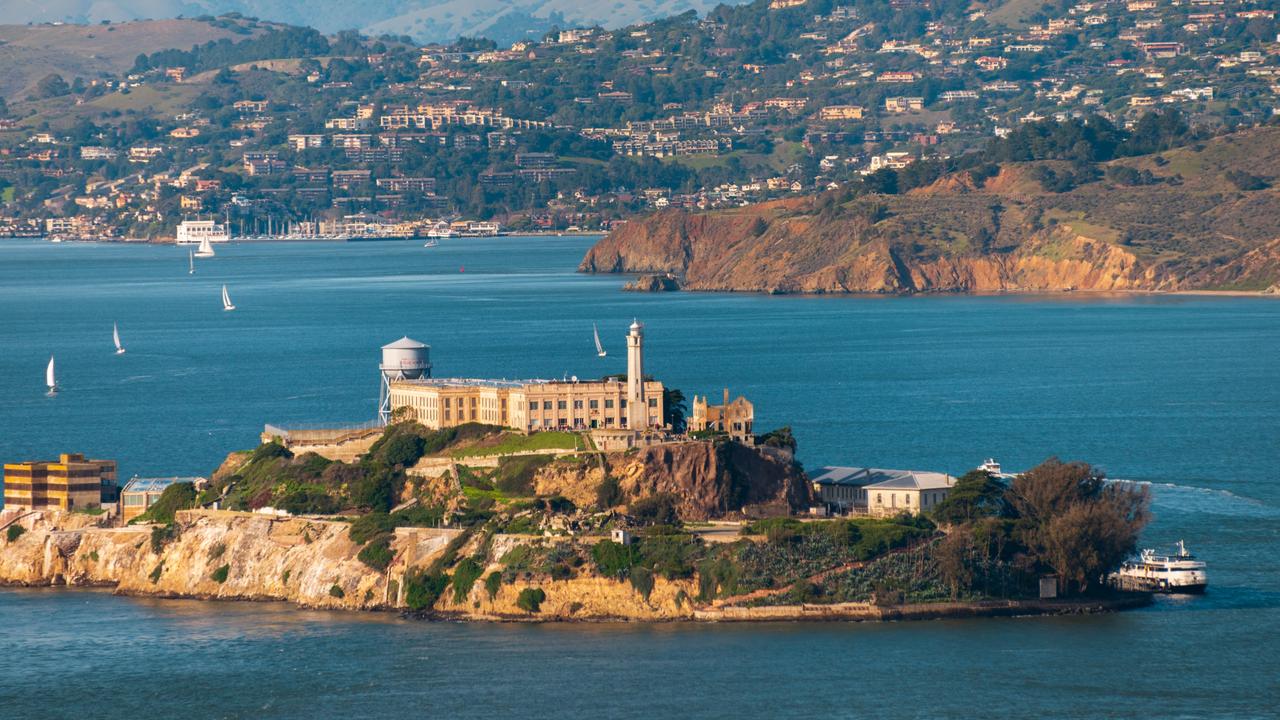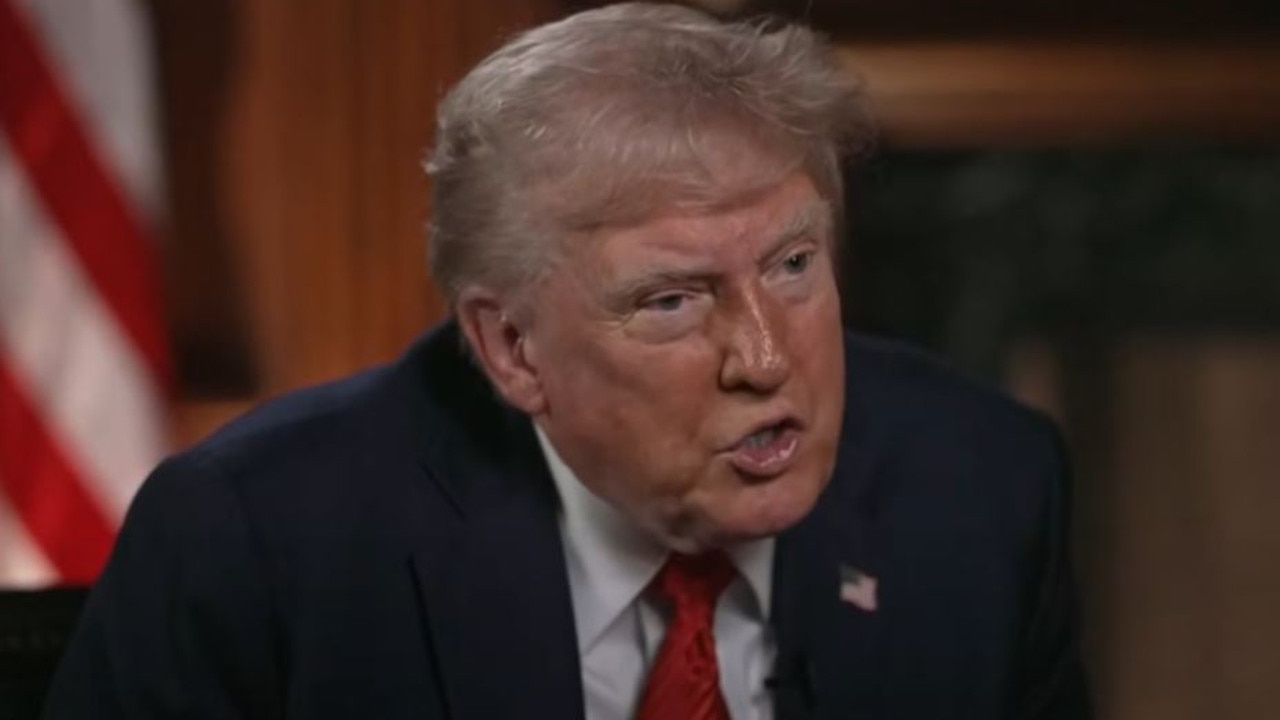Pope Francis says ‘other empires’ also to blame for ‘World War III’ in Ukraine
Pope Francis sensationally blamed ‘imperial interests’ backing Ukraine for escalating Russia’s invasion into a full-scale World War III.
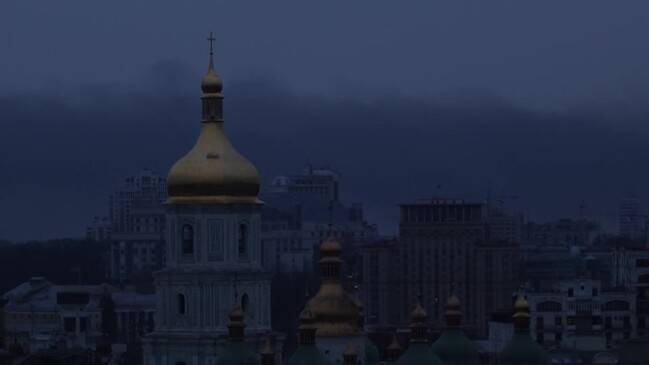
World
Don't miss out on the headlines from World. Followed categories will be added to My News.
Pope Francis claims Vladimir Putin isn’t the only one responsible for driving what he says is a third “world war” in Ukraine, pointing to “imperial interests” and “other empires” in a thinly veiled allusion to the United States.
The Argentine pontiff, who was criticised in the early weeks of the war for not blaming Moscow explicitly, said the Russian Empire wasn’t the only driving force of the conflict that has escalated, “little by little”, into World War III.
He added that he has previously offered “educated man” Putin to negotiate a peace deal between Russia and Ukraine.
“But there are imperial interests there, not only the imperial interests of Russia, but also of other empires,” he told Swiss television RSI, according to translated transcripts of the interview.
“It is characteristic of an empire to put nations second.”
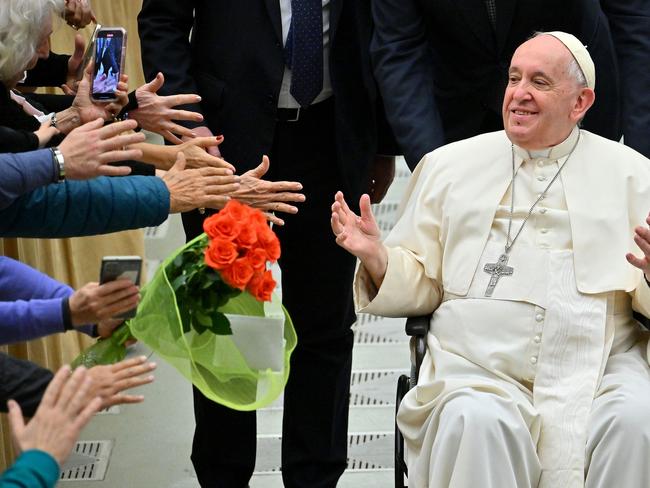
The only other “imperial interest” that could be considered involved in the Ukraine conflict is the United States and its NATO allies in the United Kingdom and European Union.
Pope Francis said the involvement of the other “great powers” backing Ukraine against the Russian Federation left little doubt that the world had escalated into another global conflict, with “old weapons being sold, new ones being tested”.
“In a little more than a hundred years, there were three world wars: 14-18, 39-45 and this one, which is a world war,” he said.
“It started little by little, and now no one can say that it is not a world war. All the great powers are involved in it. The battlefield is Ukraine. Everyone is fighting there,” said Pope Francis.
WORLD’S FIRST HYPERSONICE MISSILE BARRAGE
Vladimir Putin unleashed a rare barrage of the Kremlin’s most advanced hypersonic missiles during a seven-hour raid in retaliation for Ukraine’s cross-border attack in Russia’s Bryansk region.
While the nuclear-capable Kinzhal missiles, which travel up to 10 times the speed of sound, have previously been fired in one-off attacks on individual targets, the Ukrainian air force claimed Russia launched at least six during its pre-dawn offensive.
It would mark the first large-scale, co-ordinated use of the “dagger”, or Kinzhal, missiles which Putin claims NATO has no defence against. Typically fired from MiG-31K fighter jets from over 2000 kilometres away, Russia is said to have only 42 of the massively expensive missiles in its stockpiles.
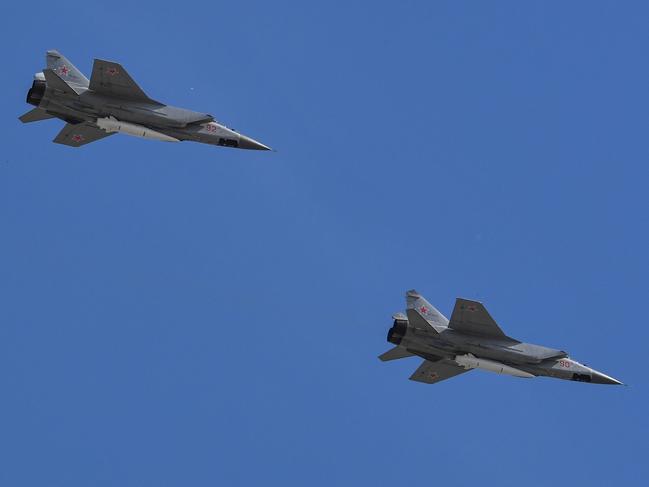
“I don’t remember, to be honest, that there was such an attack before,” Yurii Ignat, a spokesman for the Ukrainian air forces, said in a Ukrainian broadcast. “The enemy fired a total of six Kinzhal missiles.”
They were among 81 missiles that Russia’s Defence Ministry said was a “massive retaliatory strike” after what it said was a terrorist attack on the Russian side of the Ukraine border last week.
While military commander Valerii Zaluzhnyi said 34 cruise missiles were intercepted, along with four of eight Iranian Shahed suicide drones, Ukraine is thought to have no defence against the Kinzhal hypersonic missile.
The barrage targeted Ukrainian infrastructure across the entirety of Ukraine, including Lviv and Kyiv in the west, and from Odessa behind the front line to Zaporizhzhia and Kharkiv in the west.
More than a dozen were reported dead, but the death toll is expected to rise.
Power at the Zaporizhzhia nuclear power plant was temporarily knocked out and run on diesel generators, prompting warnings of a potential nuclear disaster, before it was reconnected to the Ukrainian grid.
Shocking images showed giant craters in the aftermath of one strike, with a post to Instagram purporting to indicate the size and scale of the explosion.
The unprecedented barrage of advanced weaponry may have depleted Russia’s stocks of hypersonic missiles, but Lithuania’s military intelligence chief said Moscow has enough resources to continue the war in Ukraine at its “present intensity” for at least two more years.
“How long Russia is able to wage the war will also depend on the support for Russia’s military from states, such as Iran, North Korea,” he told reporters in Vilnius.
“But if you look at what Russia has today, such as the strategic reserve, equipment, ammunition, armaments – it can wage it at the present intensity for two years.”
Ukrainian President Volodymyr Zelenskyy condemned Moscow’s targeting of critical infrastructure and residential buildings across 10 regions.
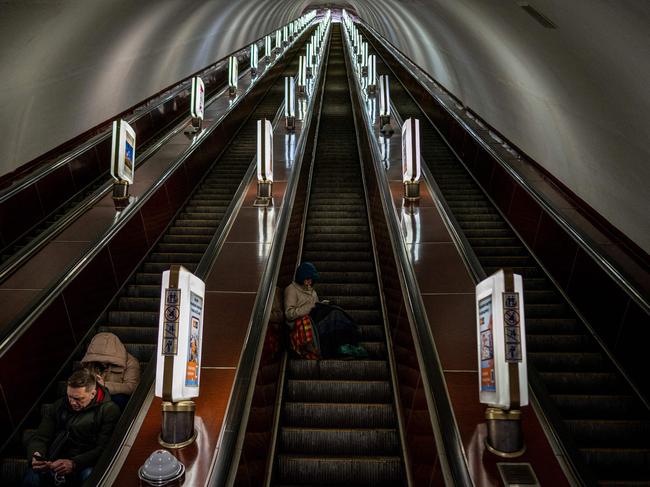
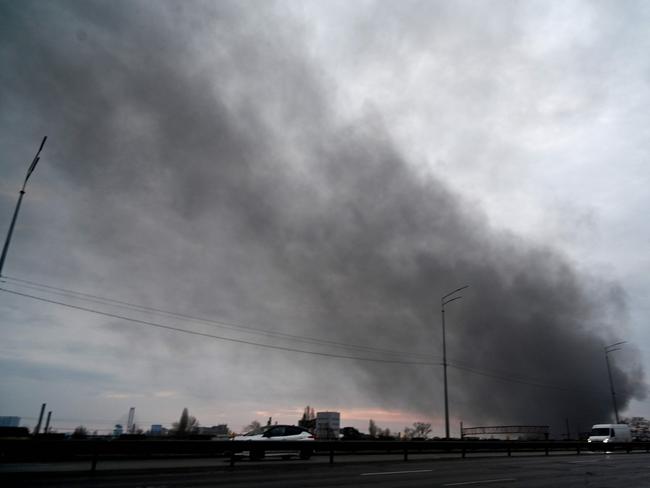
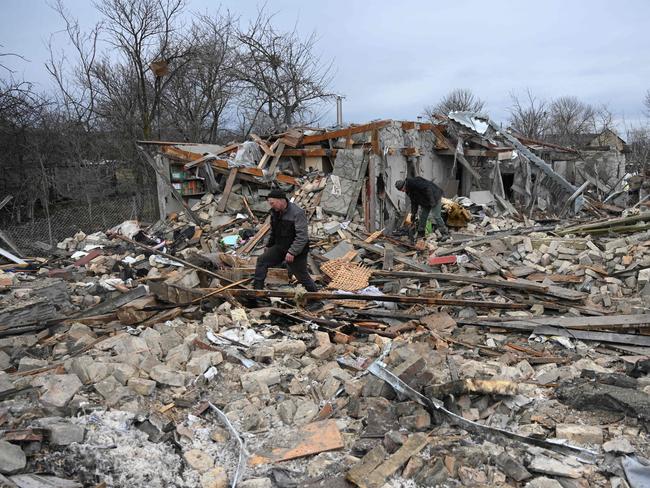
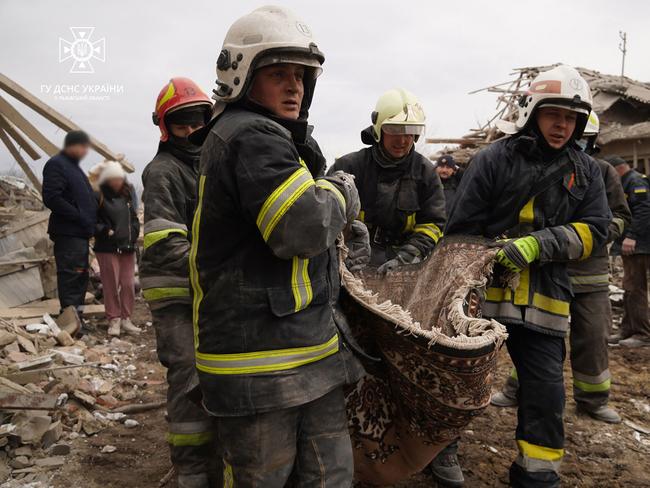
“The occupiers can only terrorise civilians. That’s all they can do. But it won’t help them. They won’t avoid responsibility for everything they have done,” Mr Zelenskyy said.
Four people were killed in the Lviv region where three buildings were destroyed by fire, with a fifth person killed in Dnipropetrovsk
Kharkiv, Ukraine’s second-largest city, was left without power, water or heating after the attack and was relying on generators for its critical infrastructure. Odessa and Zhtomyr were also reported to have lost power.
Power had to be cut off to about half of Kyiv, where residents took shelter during the seven-hour attack.
“I heard a very loud explosion, very loud. We quickly jumped out of bed and saw one car on fire. Then the other cars caught on fire as well. The glass shattered on the balconies and windows,” Liudmyla, a 58-year-old with a toddler, told Reuters. “How can they do this? How is this possible? They are not humans, I don’t know what to call them.”
RUSSIA CLAIMS PARTIAL CONTROL OF BAKHMUT
The chief of Russia’s private military company Wagner, Yevgeny Prigozhin, has claimed that the eastern part of the Ukrainian city of Bakhmut is now under the mercenary group’s control.
Mr Prigozhin is an ally of Russian President Vladimir Putin, and his recruits have been fighting for months to capture the city of Bakhmut in eastern Ukraine.
“The entire eastern part of Bakhmut is under the control of Wagner PMC. Everything to the east of the Bakhmutka River is under the complete control of Wagner PMC,” Mr Prigozhin said in an audio clip shared on Telegram on Wednesday.
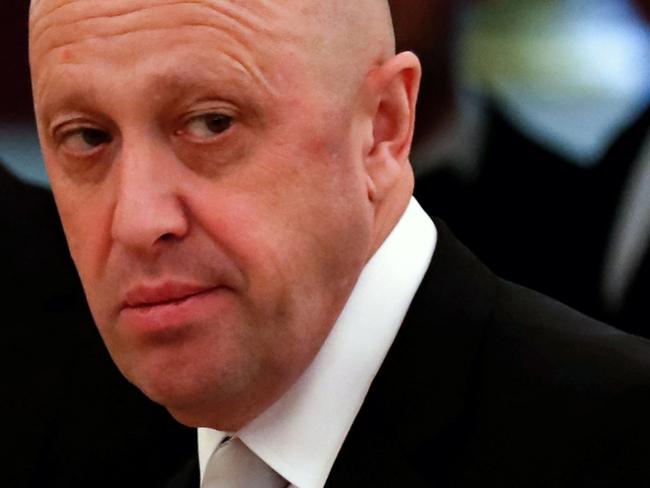
The chief’s claim could not immediately be verified. The Ukrainian military did not address his statement but said that Russian attacks in the Bakhmut area continue, and described them as unsuccessful and incurring heavy losses.
The salt-mining town with a pre-war population of 80,000 has been devastated in the longest and bloodiest battle since Moscow invaded.
NATO Secretary-general Jens Stoltenberg on Wednesday said he can’t rule out that Russian forces will soon take over the eastern city of Bakhmut.
“What we see is that Russia is throwing more troops, more forces and what Russia lacks in quality they try to make up in quantity,” Mr Stoltenberg told reporters in Stockholm on the sidelines of an EU defence ministers meeting.
“We cannot rule out that Bakhmut may eventually fall in the coming days.”
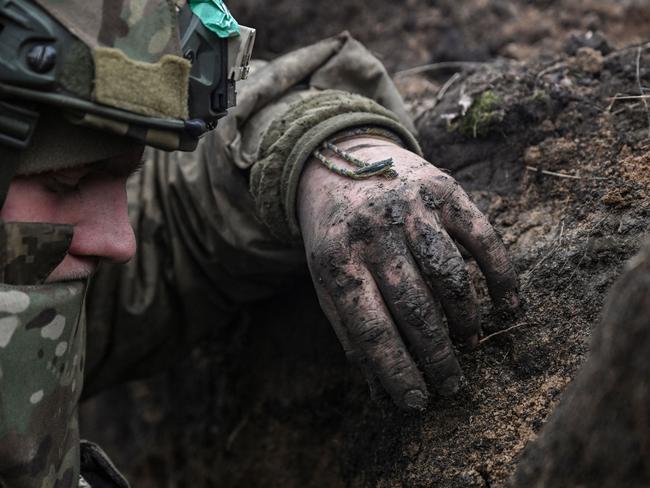
Mr Stoltenberg added that “this does not necessarily reflect any turning point of the war,” saying the conflict in the eastern Donetsk region “just highlights that we should not underestimate Russia”.
Ukrainian President Volodymyr Zelenskyy warned in an interview with CNN what could happen if Bakhmut falls to Russian forces.
“We understand that after Bakhmut, (Russian forces) could go further” and attack nearby cities in the Donetsk region,” he said in an interview aired on Wednesday.
“They could go to Kramatorsk, they could go to Sloviansk, it would be an open road for the Russians after Bakhmut to other towns in Ukraine, in the Donetsk direction.”
ZELENSKYY: ‘RUSSIA IS KIDNAPPING OUR CHILDREN’
Mr Zelenskyy accused Russia of trying “to erase the family and national identity of young Ukrainians” through mass kidnappings and vowed to hold those responsible to account.
In a tweet posted on Tuesday, the Ukrainian President said “Russia is kidnapping our children”.
“It is the largest state-sponsored kidnapping of (Ukrainian) children,” he wrote.
“With this forced deportation, (Russia) tries to erase the family & national identity of young Ukrainians.
“It is the genocide of a nation.
“Everyone who organised it will be held to account.”
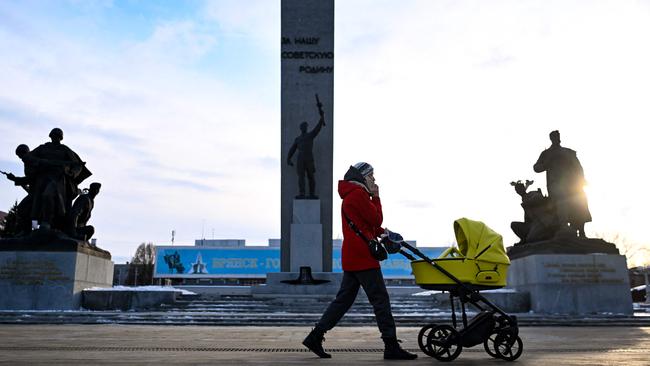
Activists and parents have repeatedly claimed that kidnapped Ukrainian children are being sent to Russian “re-education” camps — where they are kept in prison-like conditions, forced to watch Russian propaganda, beaten and subjected to sexual violence.
Inessa Vertash, 43, hasn’t seen her 15-year-old son, Vitaliy, in five months — ever since he left on what was supposed to be a two-week trip to a camp at the urging of his schoolteacher.
It was billed as a retreat to escape the fighting.
“I told her I wanted to think about it but she said there’s nothing to think about, they were leaving the next day and would get food five times a day and why would you keep him here where there are bombs and missiles?,” the distressed mother told the Sunday Times.
After the two weeks were up, the teen was moved to another camp, which he likened to a prison.
Russia is kidnapping our children. It is the largest state-sponsored kidnapping of 🇺🇦 children. With this forced deportation, 🇷🇺 tries to erase the family & national identity of young Ukrainians. It is the genocide of a nation. Everyone who organized it will be held to account. pic.twitter.com/BHiftawDzf
— Володимир ЗеленÑький (@ZelenskyyUa) March 7, 2023
Ms Vertash told the Times that her son called her crying and described his harrowing living conditions.
“There were no sheets on the beds, they were made to wear clothes of old people, given food only fit for pigs and beaten if they didn’t sing the Russian anthem,” she recounted.
Even more alarmingly, Vitaliy told his mother that Russian camp workers were forcing 13-year-old Ukrainian girls to have sex with them.
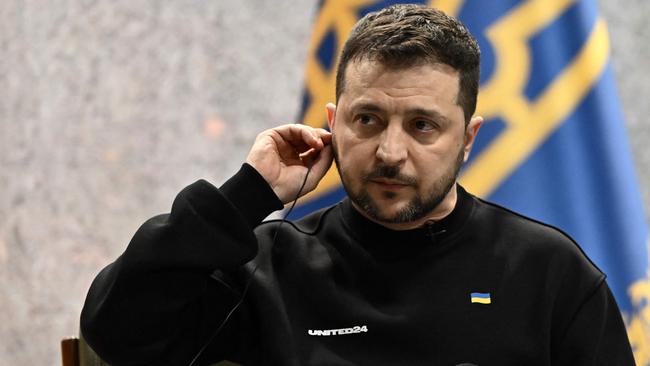
The mother’s harrowing tale is just one of many.
A report published by Yale University last month found that more than 6,000 Ukrainian children between the ages of 4 months and 17 years have been taken to 43 camps located in Russia-annexed Crimea and across mainland Russia.
But the true number of kidnapped children could be many times higher, the NY Post reports.
Daria Herasymchuk, Ukraine’s commissioner for children’s rights, told the Sunday Times that her office has so far documented 16,221 cases of child kidnappings by Russia — and even that is a conservative figure.
Herasymchuk suspects a few hundred thousand kids have been ripped away from their families as part of the Kremlin’s “Russification campaign.”
UNARMED SOLDIER SHOT DEAD
Ukrainian officials and ordinary people expressed outrage this week at a video that seemed to show a captured soldier being riddled with bullets as he smoked a cigarette in a trench after pronouncing a pro-Ukrainian slogan.
The footage, which AFP could not independently verify, apparently shows a detained Ukrainian combatant standing in a shallow trench, smoking, and being shot to death after saying “Slava Ukraini” – translated to “Glory to Ukraine”.
As the video reaches a conclusion a voice can be heard in Russian saying “Die, b---h”.
The man’s last words were trending online in Ukraine and were re-tweeted by top officials including Mr Zelenskyy. The footage has spawned a new wartime meme in Ukraine celebrating the armed forces.
On Tuesday, the Ukrainian army said, citing preliminary information, that it identified the deceased as Tymofiy Shadura, 41, a serviceman of the 30th separate mechanised brigade.
“According to preliminary information, the deceased is a serviceman of the 30th separate mechanised brigade, Tymofiy Mykolayovych Shadura,” the brigade’s Facebook post said.
He was a father of five, reports say.
“The command of the 30th separate mechanised brigade and the Hero’s brothers express their sincere condolences to his relatives and friends. Revenge for our Hero will be inevitable. Glory to Ukraine! Glory to heroes!” it said.
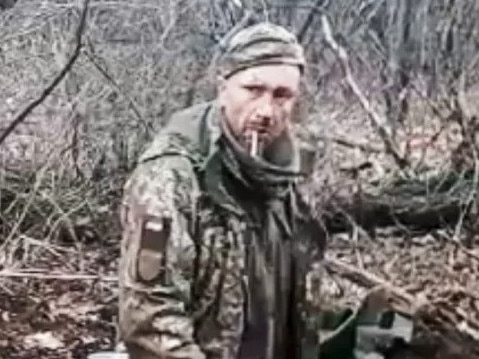
‘BETRAYAL’ OF PROMISES
The shocking magnitude of destruction inflicted by Russia’s war in Ukraine will harm the rights of generations to come, the UN rights chief said Tuesday.
Volker Turk branded it a “betrayal” of the promises made when the foundations of universal human rights were laid down in the aftermath of World War II.
He also accused Russian state media of bombarding people with constant pro-war messages inciting hatred.
“The war in Ukraine has led to civilian casualties and destruction of a shocking magnitude,” Mr Turk said in his main speech to the UN Human Rights Council session in Geneva.
“The rights of Ukrainians will be harmed for generations to come, and the war’s impact on fuel and food prices, as well as geopolitical tensions, are impacting negatively on people in every region of the world.
“That such damage could once again be done across the world by warfare in Europe is a betrayal of the promises of transformative change made at our foundation over 75 years ago.” Mr Turk is due to speak further on the war in Ukraine on March 31.
Since Russia launched its full-scale invasion of its neighbour on February 24 last year, his office has recorded and verified 8,173 civilians killed and 13,620 injured, though the true toll will be far higher.
Mr Turk said he was deeply concerned by multiple trends within Russia. He cited the closures of the top independent newspaper Novaya Gazeta and Russia’s oldest human rights organisation, the Moscow Helsinki Group, as “another sign of the demise of Russia’s civic space”.
“Constant pro-war messages on state media feed stereotypes and incite hatred and violence,” he said.
Mr Turk said more than 180 criminal cases had been opened on charges related to alleged defamation of Russia’s armed forces, with those convicted so far including a journalist and a municipal councillor.
“Since December, any person or entity considered to be ‘under foreign influence’ – an overly wide and vague qualification – can be designated as a ‘foreign agent’ and subjected to numerous restrictions,” he added.
Mr Turk also said he was troubled by legislation prohibiting so-called “propaganda of non-traditional relationships” being extended to cover information to anyone about LGBTQ relationships and sexuality, as well as gender transitioning.
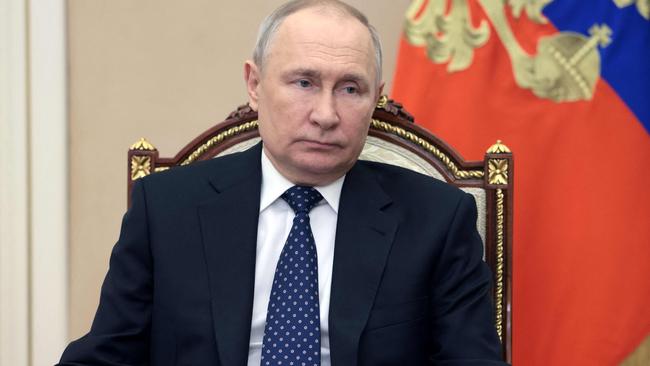
‘PRO-UKRAINE GROUP BEHIND NORD STREAM SABOTAGE’
US officials have seen new intelligence that indicates a “pro-Ukrainian group” was responsible for the sabotage last year of the Nord Stream gas pipelines, the New York Times reported Tuesday.
In a cautious report that did not identify the source of the intelligence or the group involved, the Times said the US officials had no evidence implicating Mr Zelenskyy in the pipeline bombing.
But the attack benefited Ukraine by severely damaging Russia’s means of reaping millions by selling natural gas to Western Europe.
At the same time, it added to the pressure of high energy prices on key Ukrainian allies in Western Europe, particularly Germany.
The intelligence suggested the perpetrators behind the sabotage were “opponents of President Vladimir V. Putin of Russia,” the Times report said.
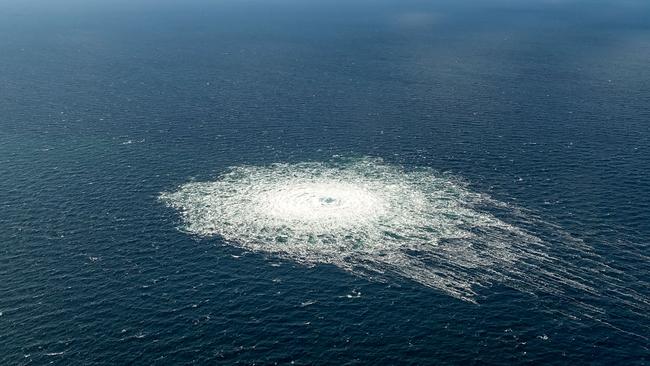
But the US officials had no indication of who exactly took part and who organised and paid for the operation, which would have required skilled divers and explosives experts.
They believed those involved were probably Ukrainian or Russian nationals, and that none were from the US or Britain.
US officials have “no firm conclusions” about the intelligence, “leaving open the possibility that the operation might have been conducted off the books by a proxy force with connections to the Ukrainian government or its security services,” the Times.
The pipelines were ruptured by subsea explosives on September 26, seven months after Russian forces invaded Ukraine.
Several countries were said at the time to have motives for the action: Russia, Germany, Ukraine, Poland, Britain and the US.
In February, veteran US investigative journalist Seymour Hersh reported that the US was behind the operation to bomb the Nord Stream pipelines and that Norway assisted.
The White House blasted Hersh’s report, which cited an unnamed source, as “complete fiction.”
– with AFP
More Coverage
Originally published as Pope Francis says ‘other empires’ also to blame for ‘World War III’ in Ukraine
Read related topics:Russia & Ukraine Conflict



